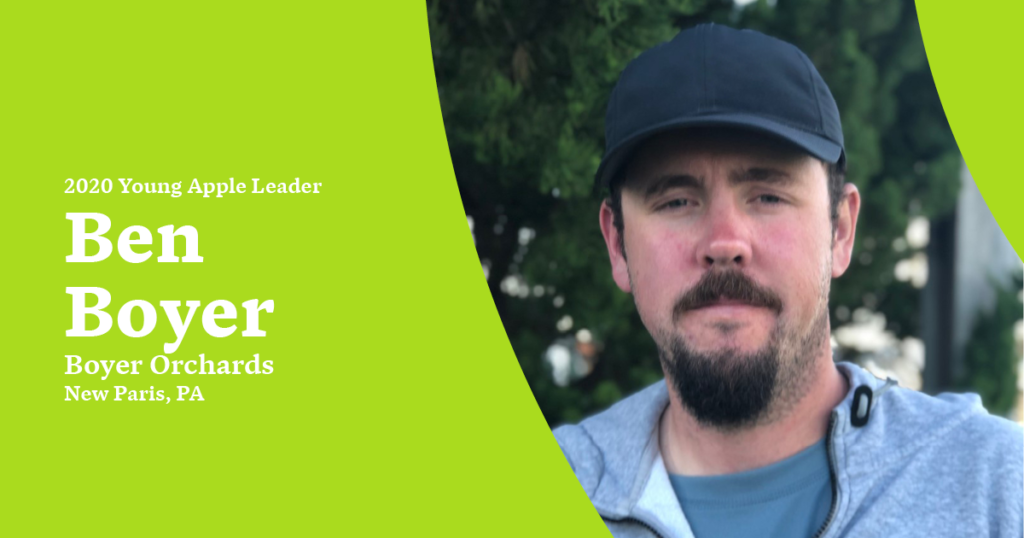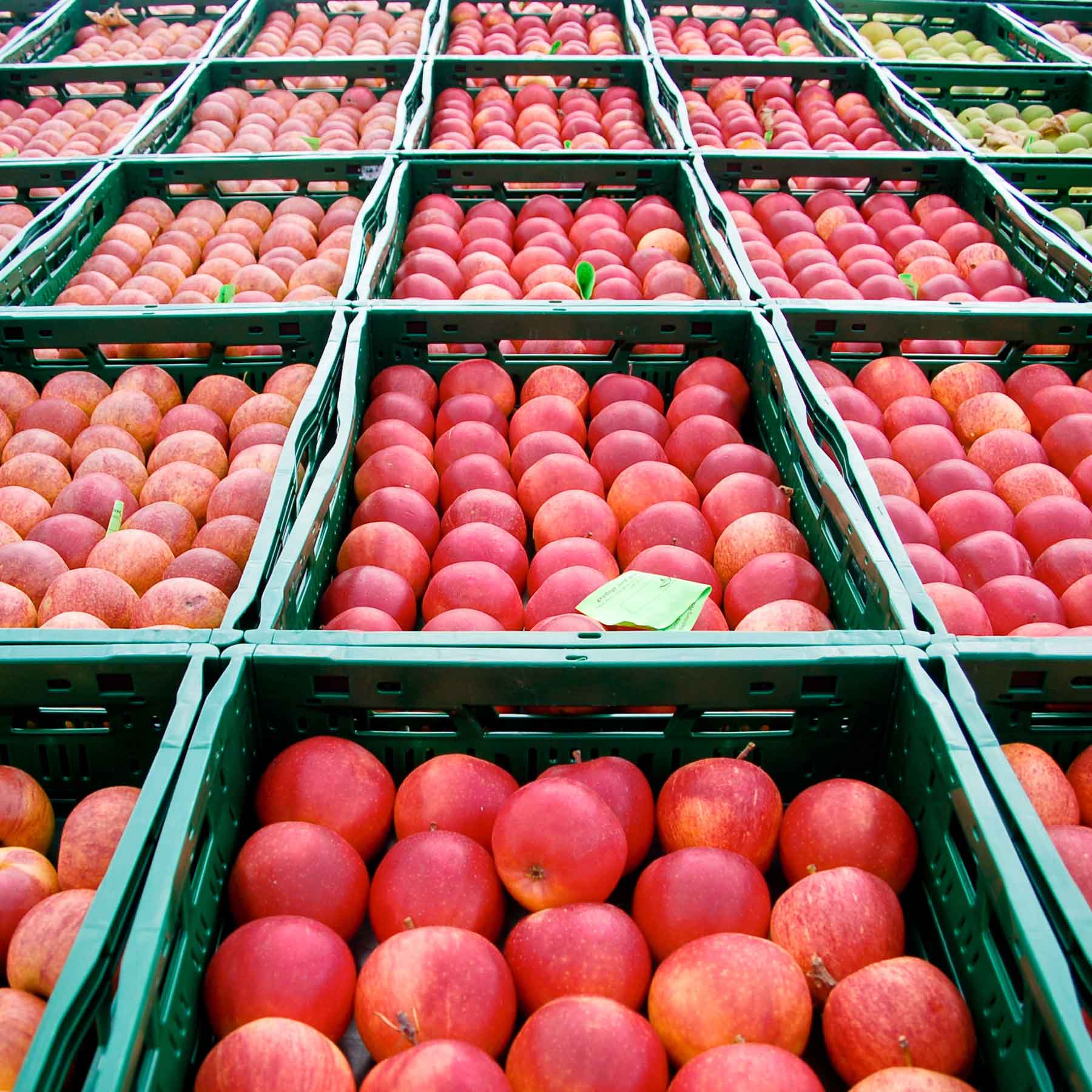
Young Apple Leader Ben Boyer of Boyer Orchards in New Paris, Pa. believes he was born to be an apple grower. From building new orchard systems and hosting the annual farmers market to trimming, hand thinning and picking, Boyer enjoys every aspect of the apple growing life.
“My grandpa started the orchard in 1957, and my dad and uncle took over in 1989—the same year I was born,” Boyer says. As many growers’ children do, Boyer has spent time in the orchard since childhood. After completing a degree in Agriculture Business at Pennsylvania State University, he joined the family orchard in a professional capacity.
No matter what time of the year it is, a farmer is always at the mercy of the elements, but that doesn’t keep Boyer from fulfilling his daily purpose. He describes it as “being part of the agriculture community and supplying the world with food.”
As a third-generation grower, Boyer recognizes that the apples that appeal to consumers today are not the same varieties as when his grandfather was operating the family orchard.
“There’s a lot of changes coming into the industry. My generation is eating more fresh apples,” says Boyer. In response to the shift in consumer behavior, Boyer Orchards is moving away from producing cooking varieties and instead opting to develop varieties that are popular for fresh consumption.
“Everything has gone to eating Galas, Honeycrisps and Fujis, so we’ve made some decisions to turn away from Macintoshes, Romes and Cortlands,” says Boyer.
As a fresh fruit grower, Boyer strongly believes that quality matters more than quantity. He wants to use his platform as an emerging leader in agriculture to educate Americans about pesticides. Apples are threatened by hundreds of different insects, diseases, fungi and other conditions that attack the tree or the fruit it produces. To ensure Americans always have access to high-quality, pest-free apples, growers must take steps to protect their trees and fruit from injury or destruction by apple pests.
“There is a big stigma that with a lot of produce, they think it is just plastered with spray. We try and spray as little as possible,” he explains. In fact, a child could eat 340 servings of apples every day without effect from pesticide residues. A woman could eat 850 apples a day and a man 1190 apples a day with no effect.
A priority for Boyer during USApple’s Capitol Hill visits was discussing how the H-2A visa program, which allows farmers to hire temporary foreign-born workers, could become easier for farmers to implement into their operations. “We support the program. I would love to see it more streamlined and easier for farmers—there’s just a lot of red tape.”
More than half of the employees at Boyer Orchards are staffed through the H-2A program, and the business has been using this program for about five years. As COVID-19 may impact the H-2A program, USApple will continue to advocate for access to a reliable, legal workforce that growers need to operate.
Because he was born and raised in the apple industry, Boyer does not necessarily face all the adversities that someone who wants to be a first-generation farmer would. He is, however, eager to speak up about those setbacks for first-generation farmers in today’s economy so his peers can succeed regardless of their family’s history.
“There are more barriers for people who started with nothing and just want to get into farming.”
Enjoying his day-to-day work and his family’s orchard is just one part of the passion and dedication Boyer has for the greater industry. He is also looking to make an impact beyond his family’s business.
“I don’t think farmers have it easy. We’re at the mercy of government, the weather and rising costs.” That’s why Boyer is excited to be a part of the Young Apple Leaders program—to elevate the voices of people who feed the world.








